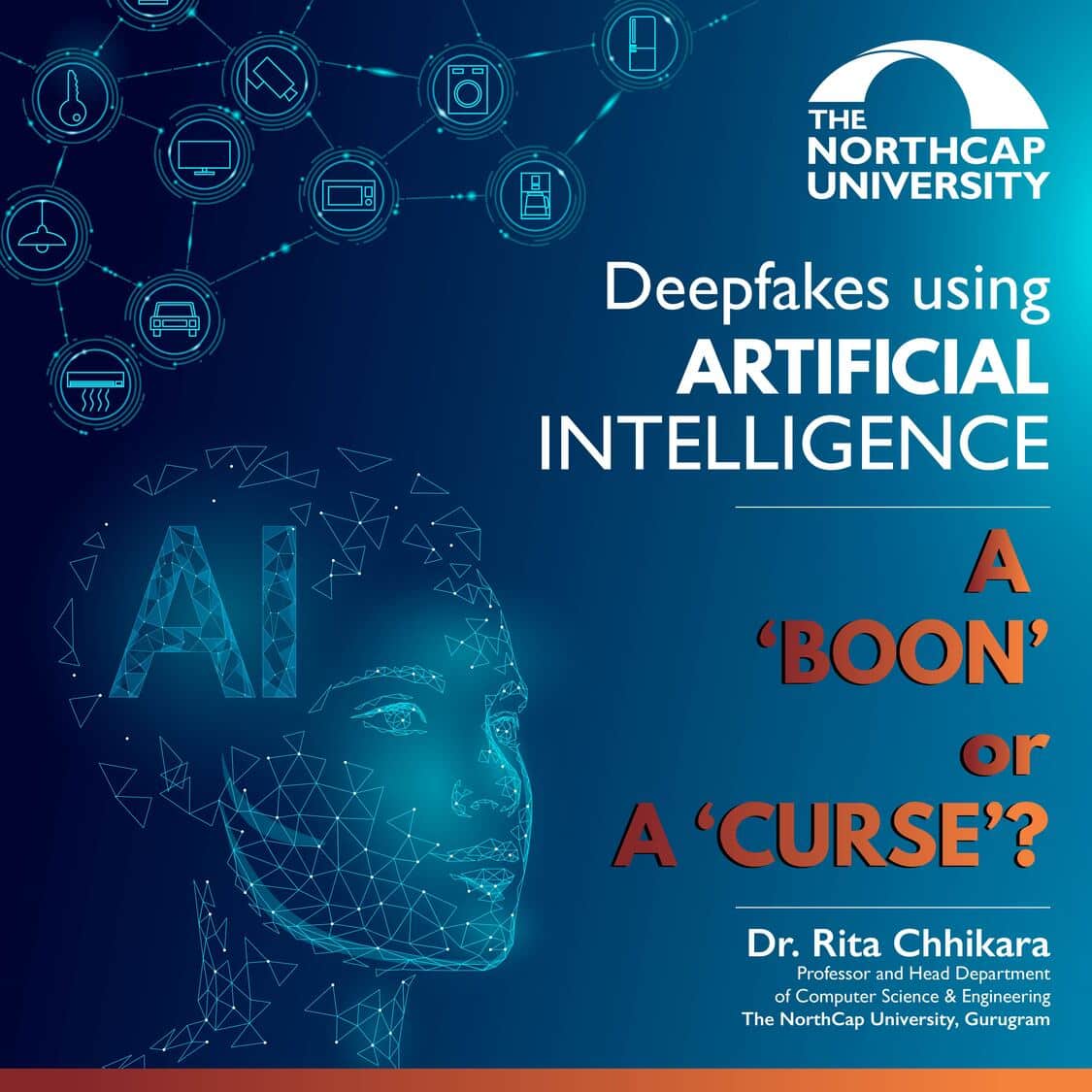Deepfakes using Artificial Intelligence: A ‘Boon’ or a ‘Curse’?

The most intelligent species on Earth are human beings. The reason behind it is their reasoning skills, ability to learn, decision-making to solve any problem, perception through experiences or sense organs and strong communication skills. Amalgamation of all these skill sets led to the emergence of ‘Artificial Intelligence’, a branch of Computer Science. What used to be buzzword in the world of tech even a few years back is now the most sought-after technology. In a very short span of time we have become surrounded by devices with Artificial Intelligence embedded in them like smartphones, smart homes, smart speakers, smart cars etc. The very fact that technology runs our lives today appears to be amazing and, at the same time somewhat unnerving. Amongst the various developments in the arena of Artificial Intelligence, Deepfakes is one such technology that has surfaced since 2017 and has astonished the world.
Deepfake is capable of creating identical looking photos of people who are very popular on social media as their public profiles provide plenty of images for an Artificial Algorithm to learn and generate the replica. The word Deepfake has been coined from two terms “deep learning” and “fake”. Deep learning is a branch of Artificial Intelligence which is inspired by the human brain. It emulates human behaviour of learning by performing a task again and again, learning by mistakes and improving at every step to achieve the desired goal. The large number of selfies available on social media has over the years made Deepfake technology evolve to such an extent that differentiating between fake and real photos and videos has become a challenge for Tech professionals. Generative Adversarial Network (GAN), the main technology behind Deepfakes has now started looking up to the digital forensics experts for its detection. Deepfakes has put forth a big question to us, whether it is a ‘Boon’ or ‘Curse’.
The Film industry is gaining tremendously from this technology. Famous actors like Tom Cruise have dedicated TikTok accounts entirely on their deepfakes. A live image created from still images of Marilyn Monroe, Salvador Dalí and the Mona Lisa has been possible through deep learning algorithms used in deepfakes. Mona Lisa appeared to be laughing and silently mouthing the words that could be the answer to the mystery that has captivated viewers for centuries. This was an amazing breakthrough with this upcoming technology of Deepfakes.
Various creative sectors like filmmakers, 3D Artists and fashion designers are thriving owing to Deepfake technology as it reduces the effort required for editing, dubbing, repairing videos and creating apps that allow us to try new clothes and hairstyles. This technology is likely to bring revolution in the health sector also, for example, plastic surgeons can gain by performing the reconstruction of the face first virtually and also develop an understanding of different stages required for surgery. However, a fear always prevails in our mind as to what if the technology turns out to be detrimental.
The inflection point at which we are standing today, the Deepfake has become a threat to our political and social force. The main cause behind it is the rapid growth in the online content posted by people without realising the repercussions it could have on their personal, political or social life. There is an exponential growth in the destructive deepfake content being streamed on the internet, which has made us think if this technology is increasing our efficiency or degrading human values. This threat has come a long way from being hypothetical: there are various examples of deepfakes influencing the real world sectors like politics, banks, stocks, the film industry etc.
Instances of deepfake videos have been found to be used for destroying reputation of political/famous personalities. For example, a fake video of President Obama using derogatory remarks to let down the potential successor. In another instance, a fake video of Mark Zuckerberg was in the news for admitting that Facebook is not to be liked as its true goal is to manipulate and exploit its users. Deepfake technology has also been causing havoc in other sectors like Banking and Stocks. Fake audio generated through Artificial Intelligence voice cloning tricked a bank into transferring around $35 million to a wrong account. If not detected and curbed, the level of manipulation possible through Deepfake technology could spell a curse on society.
Deepfakes could be the new weapon any individual, society or country could use for destructive purposes. The question now arises, do the pros of the technology outweigh the cons and do we need to establish strong regulations on ethics in Artificial Intelligence to avoid serious national and international security risk?
Author

Dr. Rita Chhikara
Professor and Head Department of CSE
The NorthCap University, Gurugram
